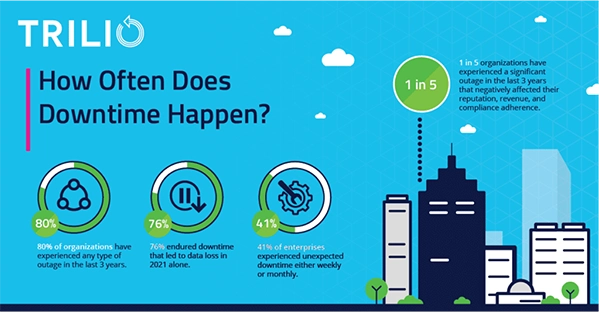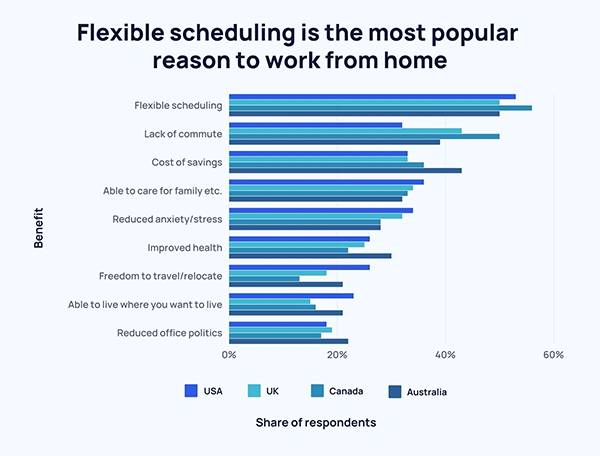Harnessing the Full Power of the Cloud for Business
Did you know that small businesses make up over 99% of the total companies in the United States? Often, the main differentiator between small businesses and the largest corporations is the resources available to each. In the past, this gap has been almost impossible to close because of how the economy works. However, the Internet has completely changed the game and made many resources available to businesses of all sizes.
One of those technologies that has impacted the business world is the cloud. Cloud computing is a newer innovation that is quickly becoming one of the most valuable business tools in the world. The idea is that internet tools and applications can be accessed without the need for a physical server network onsite. As a result, businesses of all sizes can reliably use the Internet and its endless services without spending a ton of money on infrastructure.
It is useful to business owners for a multitude of reasons. Let’s dive into some strategies for harnessing the full power of the cloud for your company. Also, learn about Maximizing ROI with Google Cloud in this guide.

Lower Overhead Costs
One of the primary advantages of using cloud computing is avoiding unnecessary expenses. You need a certain amount of power and an internet connection to run the equipment. Traditionally, this meant having to invest in physical servers on-site.
And this is where cloud computing comes under the limelight. Basically, cloud computing means that you can use remote servers only for the amount of storage and processing power that you require. As a result, you do not have to invest in any physical servers. Also, maintenance and repairs for those servers are handled by the host rather than yourself.
You will not have to worry about building a network that is overpowered, either, since you only pay for the amount of capacity that you require at the time. Just in case you feel a lack of storage, you can easily upgrade for more storage service. All this means fewer overhead costs for the business.
Reduced Downtime
Another side effect of hosting your server network onsite is having to manage downtime when things go wrong. If the servers for your company experience issues, everything stops until they are fixed.
Whereas, remote servers are managed by a cloud hosting service, which means they have access to better resources. Often, if some servers go down, they have a strong enough network of backup machines to handle the load.
Even if work is interrupted, their team is likely equipped to repair the issue much faster than your team would be. With less downtime because of the cloud, your team members can continue to operate as normal with fewer interruptions to the workflow cycle.
Integrated Programs
Another massive advantage of cloud computing is the availability of online tools and how well they integrate. Many of the most impactful programs you can use are built for cloud computing.
For example, a customer relationship manager like Salesforce, which should always be tested for its effectiveness in your operations, can run smoothly when integrating with many of your business applications. Similarly, if you are also a business owner, you must go for the option to prove your efficiency in operations.

This infographic from Trilio shows different information about downtime. This shows how big of a problem downtimes are.
This makes it easier to track customer data, share it among various departments, and grant access to this information to the right parties in the organization.
Remote Work Opportunities
The current trend in the business world involves a remote-focused workforce. And why is remote working so popular? Here are some reasons in the graph.

Coming back to the topic, millions of jobs can be done from anywhere with a laptop and Wi-Fi connection. However, many companies are uncertain about how to adapt their infrastructure to support remote work.
The cloud makes things a lot easier. Rather than having to download applications onto everyone’s computers, it allows all employees to access online tools wherever they are. In practice, this could be beneficial for implementing an enterprise resource planning tool.
Further, with the right ERP, your remote employees can use all applications that the company relies on from home. When questions arise, GSI services can easily handle these ERP concerns because of the program’s remote nature on the platform.
Flexible Services
Perhaps the greatest advantage that cloud computing has over traditional infrastructure is its flexibility. If your computing needs change, it can be an expensive and slow improvement in new power capacity requirements. If you rely on a cloud network, then it may just be a matter of upgrading your service with a higher subscription fee. Less money will be spent on hardware and the transition to greater processing power is much quicker.
Final Words: The Cloud Will Help You Keep Pace in Competitive Industries
You can safely bet that some of your competitors are already taking advantage of cloud computing. This strategy provides all the benefits listed above and more, positioning companies that use it for long-term success. If you want a chance to remain competitive within your industry, then adopting the cloud might be a necessary step.
At the very least, the transition could put you at the leading edge of your industry by streamlining operations and cutting overhead costs significantly. Research what cloud computing can do for your business and make sure you are harnessing its full capabilities for your brand.
